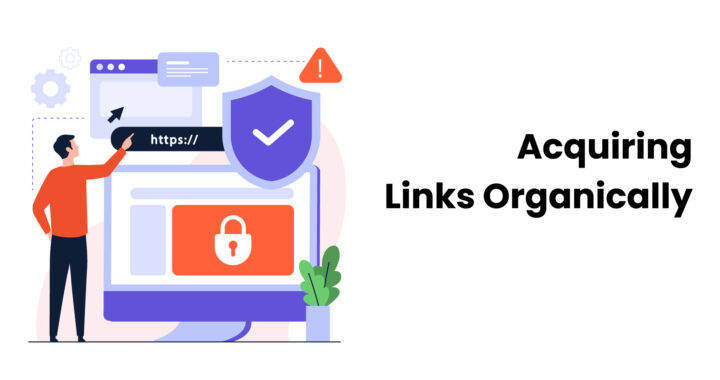Link building is a cornerstone of search engine optimization (SEO), serving as a crucial factor in determining a website’s credibility and ranking potential. It involves acquiring hyperlinks from other sites to your own, effectively signaling trust and authority to search engines like Google. However, not all links are created equal, and a strategic approach is necessary to maximize their impact. This comprehensive guide explores the fundamentals, best practices, and cutting-edge strategies for successful link building.
What Is Link Building and Why Does It Matter?
At its core, link building is the practice of obtaining inbound links (backlinks) from external websites to your own. Search engines consider backlinks as endorsements of your site’s content. The more high-quality links pointing to your website, the better your chances of ranking higher in search engine results pages (SERPs).
But it’s not just about quantity—quality, relevance, and diversity of links matter significantly. High-authority domains linking to your content enhance your reputation, while links from low-quality or spammy sites can have the opposite effect. A well-executed link-building campaign helps improve:
Search Rankings: Backlinks remain one of Google’s top ranking factors.
Website Traffic: Referral traffic from linked websites can drive new visitors to your site.
Brand Authority: Being linked to by reputable sources enhances your credibility.
Faster Indexing: Search engines crawl sites through links, making it easier for them to discover and index your pages.
Types of Backlinks: The Good, The Bad, and The Ugly
Not all backlinks provide the same SEO benefits. Here’s a breakdown of different types of links and their impact:
High-Quality Backlinks
Editorial Links – Earned naturally when other websites reference and link to your high-value content.
Guest Post Links – Acquired through well-researched and informative articles published on reputable blogs.
Resource Page Links – Found on pages that list useful tools, guides, or references within a specific industry.
Niche-Specific Links – Contextually relevant links from websites within your industry.
Low-Quality Backlinks (To Avoid)
Paid Links – Buying links violates Google’s guidelines and can lead to penalties.
Spammy Directory Links – Automated directory submissions add little value.
PBN (Private Blog Network) Links – Links from artificially created websites designed solely for SEO manipulation.
Comment Spam Links – Links left in blog comments with no genuine engagement.
Proven Link Building Strategies for 2025
1. Develop Share-Worthy Content
The most sustainable link-building strategy is creating high-value, shareable content that naturally earns backlinks. Focus on:
Original Research & Case Studies – Data-driven insights attract links from authoritative sites.
Infographics & Visuals – Engaging, easy-to-digest visuals increase share ability.
Comprehensive Guides & Tutorials – In-depth, long-form content becomes a reference point in your industry.
2. The Skyscraper Technique
This technique involves identifying top-performing content in your niche, creating something even better, and then reaching out to websites linking to the original content. Steps to implement:
Research high-ranking content using tools like Ahrefs or SEMrush.
Improve upon it by adding more depth, updated statistics, and better visuals.
Contact site owners linking to the old content and suggest your improved version as a replacement.
3. Broken Link Building
Websites often have broken outbound links that lead to non-existent pages. You can leverage this by:
Identifying broken links using tools like Check My Links.
Creating similar content that serves as a replacement.
Reaching out to website owners and suggesting your link as an alternative.
4. Unlinked Brand Mentions
Many websites may mention your brand without linking to your site. You can capitalize on this by:
Using Google Alerts or Ahrefs to track brand mentions.
Politely requesting site owners to turn the mention into a hyperlink.
5. Guest Blogging with a Strategic Approach
Guest posting remains an effective way to secure high-quality backlinks. However, focus on:
Targeting authoritative and relevant blogs in your niche.
Providing unique insights rather than generic content.
Following the guest post guidelines of the target site.
6. Building Relationships with Influencers and Journalists
Journalists and influencers often link to valuable sources in their articles. You can engage with them through:
HARO (Help A Reporter Out) – Responding to journalist queries with expert insights.
Social Media Engagement – Building relationships through meaningful interactions.
Collaborative Content – Partnering with influencers for co-authored content.
Metrics to Track Link Building Success
To measure the effectiveness of your link-building efforts, keep an eye on these key performance indicators (KPIs):
Domain Authority (DA) & Page Authority (PA) – Higher scores indicate stronger backlinks.
Number of Referring Domains – More unique domains linking to your site signal credibility.
Organic Traffic Growth – Increased traffic from search engines reflects successful link acquisition.
Conversion Rates – Evaluate if referral traffic from backlinks is converting into leads or sales.
Anchor Text Distribution – Ensuring a natural mix of branded, generic, and keyword-rich anchor text prevents penalties.
Common Link Building Mistakes (and How to Avoid Them)
Ignoring Relevance – Links should come from websites closely related to your niche.
Over-Optimizing Anchor Text – Excessive use of exact-match keywords in anchor text can appear manipulative.
Using Automated Link Building Tools – These often create unnatural links that violate Google’s policies.
Focusing Only on Quantity – A handful of authoritative backlinks outweighs hundreds of low-quality ones.
Neglecting Internal Linking – While external links are crucial, a solid internal linking structure improves SEO as well.
Conclusion
Effective link building requires patience, strategy, and continuous effort. By focusing on creating valuable content, engaging in ethical outreach, and leveraging smart link-building techniques, you can improve your website’s authority and achieve better search rankings. Avoid shortcuts, stay updated with SEO best practices, and track your progress to ensure long-term success in your link-building journey.
